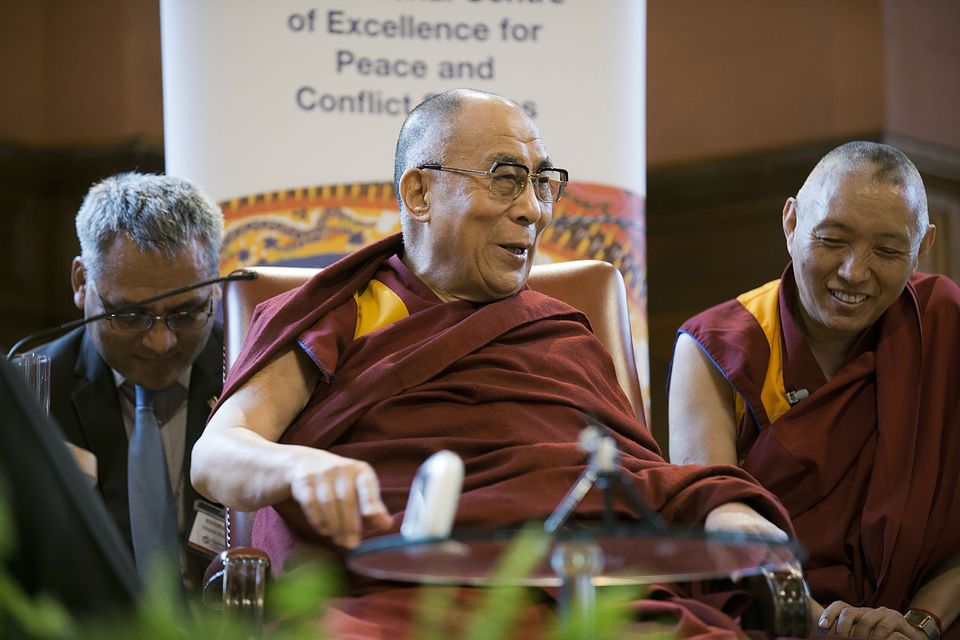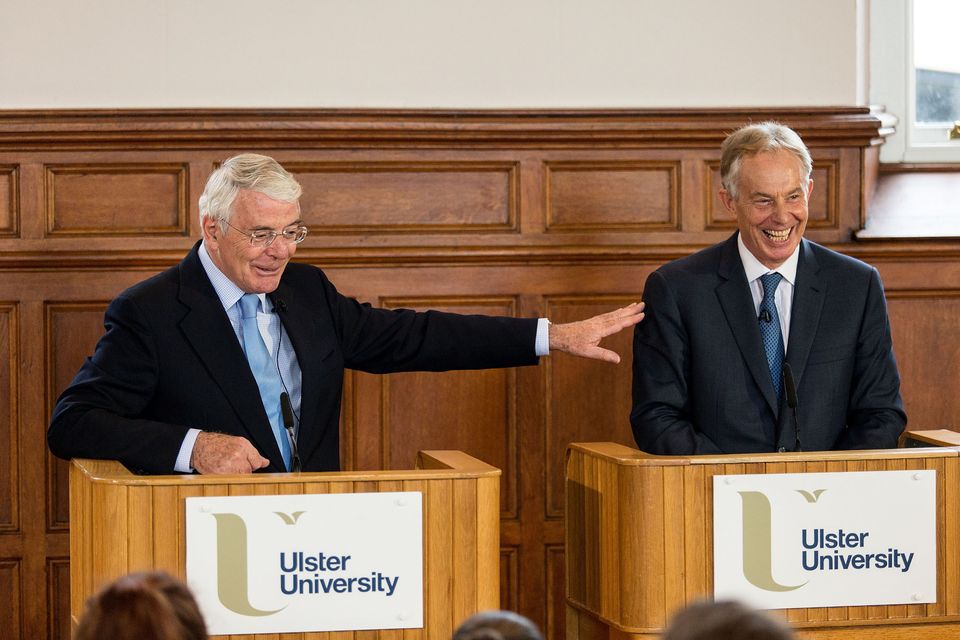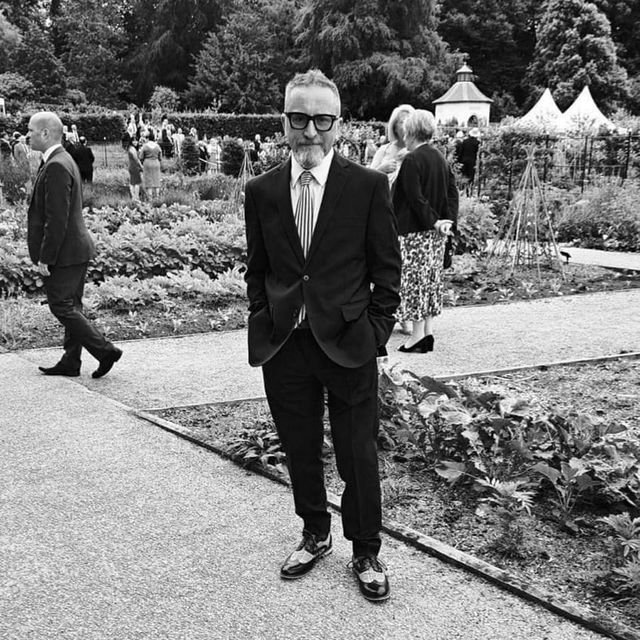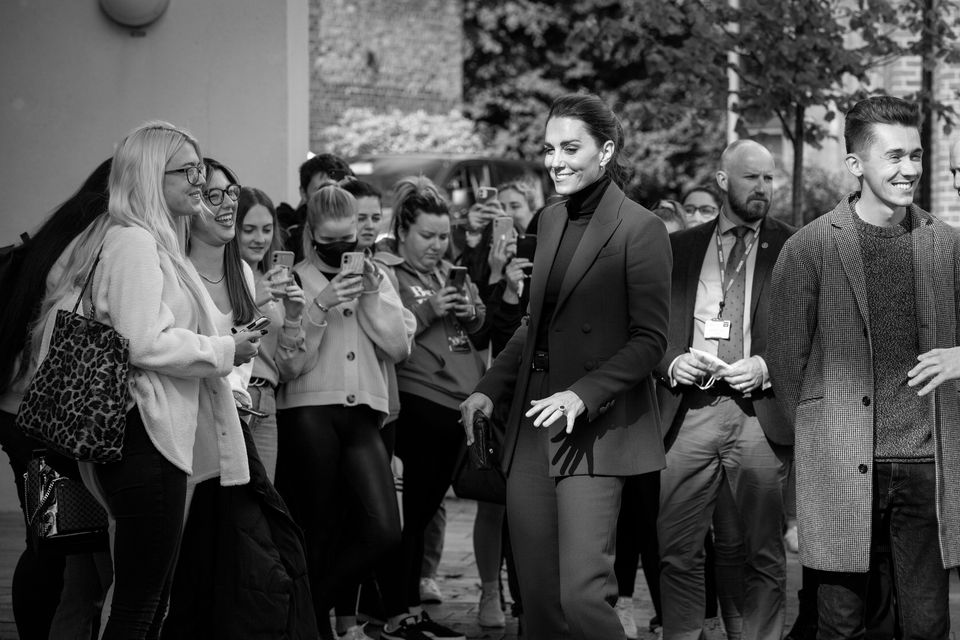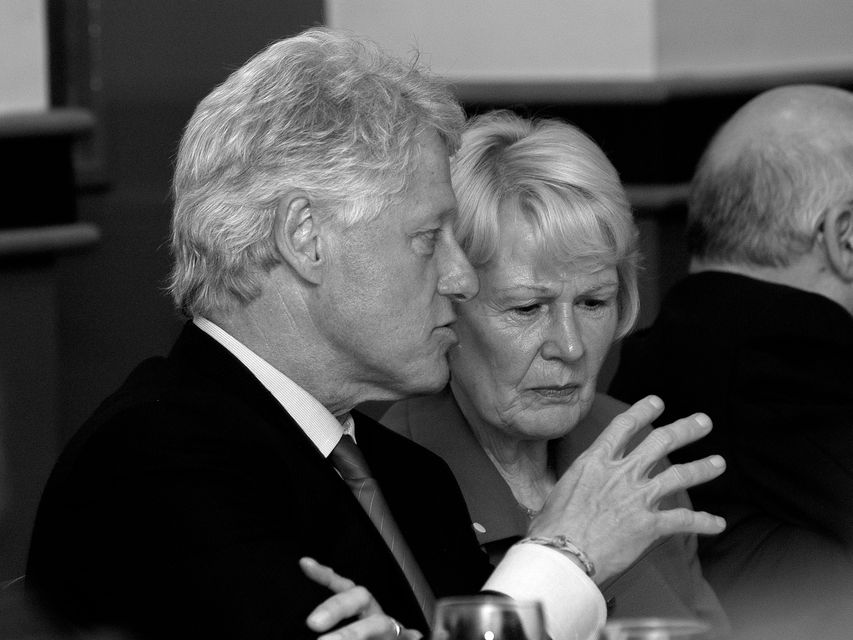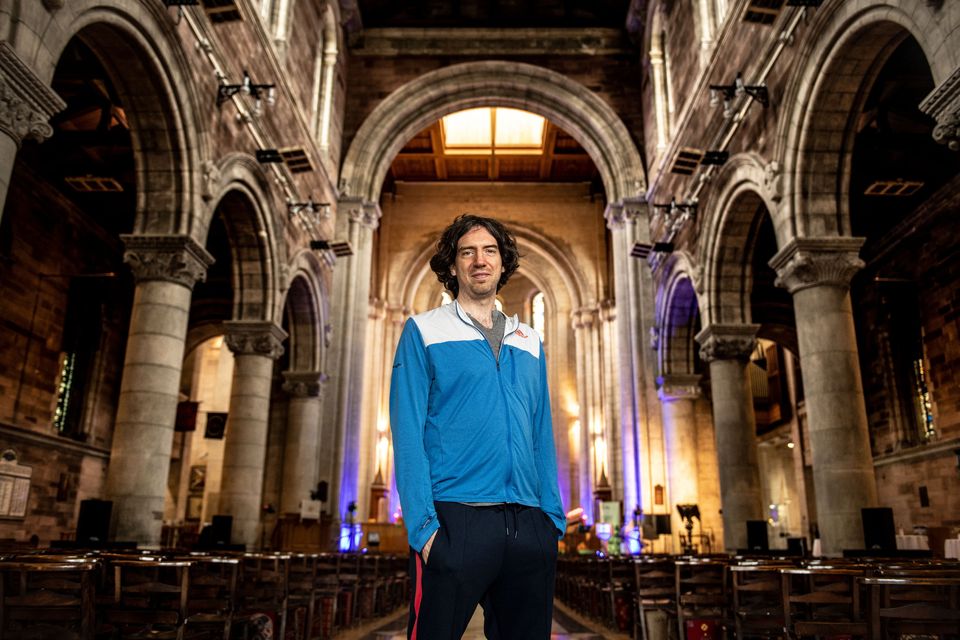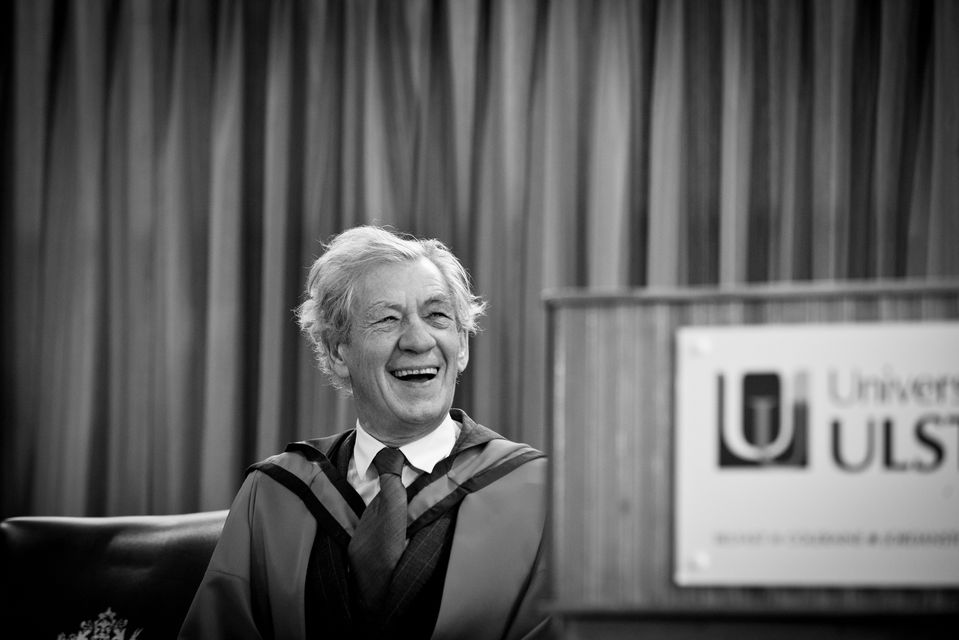After 44 years of service, Nigel McDowell has finished up his role within Ulster University.
The digital media co-ordinator and photographer has spent over four decades working across all of the campuses and departments, after “falling” into university life “by accident”.
“I left Coleraine Inst in the summer of 1980 with eight O-levels, but we were a big working-class family — nine kids — and my dad just said: ‘Get into the job.’ And that was it,” he says.
“I started there as a lab technician, but that only lasted a few months because then the boss asked me would I help out in the photographic suite.”
Dalai Lama, photographed by Nigel
When the American man running the suite returned to the United States three months later, Nigel, who is from Coleraine but now living in Ballybogey, was asked if he minded staying in the job.
“I left school not knowing what I would do. The lab technician job came up in the university and I applied for it and got it, as I say, but that didn’t last.
“The dark room was more interesting to me than the labs — a lot of black-and-white printing and traditional stuff — and then it’s the kind of job where technology kept moving and changing over the years and went from film-based photography to digital and so on.”
Former Prime Ministers Tony Blair and John Major during a ‘Britain Stronger in Europe’ campaign event at Ulster University’s Magee campus in Derry-Londonderry
Shortly after moving to the dark room, Nigel began a three-year part-time course that gave him the grounding in photography.
“A lot of the early days, it was mostly more printing in the dark room than actual photography, and then it incorporated more and more photography. Then, obviously, digital came around.
“Everybody held on to the dark rooms, out of a sort of love for the dark room, and they were reluctant to let go of them.
“Professional photographers, they were all going, in terms of digital: ‘Is it as good as film stuff?’ Which obviously it did, and then surpassed.
“Over the years, I taught myself in video as well, and I did a lot of video. I was doing photography, and just wee talking-head videos, learned to edit as I went along, doing basic videos, and then I got better at it.”
Nigel McDowell
Nigel has photographed many celebratory moments and high-profile visits to the university, with guests including the Dalai Lama, Desmond Tutu, senior UK royals and Sir Ian McKellen.
The role, whether the subject matter is high profile or otherwise, is to photograph people.
“When you’re out photographing those, it’s just another event. You’re just intent on getting the photographs and stuff, and producing them, and not get too starstruck by it — although it’s lovely to meet these people.
“You sort of stay in the background and try to get your shots.
Prince William and Kate Middleton meet Ulster University students at Ulster University’s Magee campus
“Then you’ve obviously got those celebrities… But it’s the actual people within the university you make friends with, and you’re still friends with 20 years later, because the celebrities come and go.
“Desmond Tutu was one of the nice ones. I’ve a great photograph of Desmond Tutu, just his big, gregarious laugh. [He’s a] humorous kind of guy.
“There’s Bill Clinton, Hillary Clinton, Desmond Tutu, Ewan McGregor, the Queen a couple of times in Coleraine, and, more recently, [King] Charles was there. I’ve covered a lot of the big ones there; it’s nice to look back on.”
Bill Clinton with Pat Hume
Interpersonal skills, including the ability to get on with the subject matter and make them feel comfortable, is vital.
“I don’t see my interpersonal skills but, looking at the [retirement messages received from various people], a lot of the messages were ‘Thanks for putting me at ease, especially doing videos’.
“Academics can get very nervous. I would joke and put them at ease — maybe not knowing [I was doing it].”
Outside of work Nigel has enjoyed landscape photography, benefiting from his North Coast location to capture the best of early mornings and late nights.
Gary Lightbody, photographed by Nigel
“I’ve probably gotten more busy towards the end of my career than I ever was,” he says.
“It was just the demands — we’re booked so far in advance. And it was so full on that, eventually, I just couldn’t do any photography outside of work.
“It was like a busman’s holiday. I just wanted to relax. But I’ll maybe pick that up again now I’ve got time on my hands.”
It’ll feel “very strange” to wake up this week and not have to go to work: “When you start a job at 16… that’s been my whole life. I’ve never known anything else.
Sir Ian McKellen
“I look now at 16-year-olds and I think: ‘Oh, my God.’ At 16, getting a job, I thought I was growing up, because the generation before that, my parents would have left school at 14, and we were shocked at that. Maybe youngsters are shocked now that we leave school at 16 — or some of us did.
“I suppose it gives you a good, long career, because maybe some people aren’t getting really stuck into their careers; they’re 25 or something by the time they get a post-grad.
“But I have no regrets about not going to university. I’ve enjoyed the whole 44 years there and the variety of people and the technology.”
